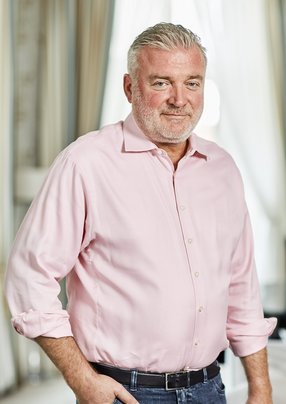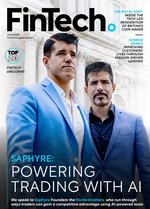
5 Minutes with Lars Seier Christensen
Founder and CEO of Saxo Bank
Describe your role and your background. How did you get here?
I am the Chairman of the Concordium blockchain foundation and also of my own investment family office, Seier Capital. I founded Saxo Bank and ran it as CEO for 20 years, after having learned the trade in the finance sector in London.
What did you want to do as a job when you were a child?
I have always been very interested in history and philosophy, and was particularly fascinated by Ancient Greece and Rome. So as a child, I wanted to become an archeologist.
If you have any words of wisdom for your eight-year-old self, what would they be?
Always do what you love and success will follow. Don’t follow others’ advice and opinions if you don’t agree, not even mine.
What’s the best piece of advice you ever received?
I had the privilege of knowing Jack Welch and his very focused approach on keeping things simple and delegating responsibility to your management. I found it very helpful.
Who or what inspires you in fintech today?
I am very involved in blockchain technology, following the synergies between this new technology and the traditional financial sector with great interest. I believe many inefficient processes in settlement, trading, compliance, and many other areas can be greatly improved by managing data on a blockchain.
How did you get into blockchain, and what excites you most about it?
I was made aware of Bitcoin back in 2011 and have followed the industry with increasing intensity since then. I believe that blockchain has a similar transformative potential as the internet had back in the ‘90s, and I enjoy being involved at the cutting-edge of technology again.
If there’s one piece of technology you couldn’t live without, what would it be?
I am a heavy user of my IPad, which has replaced the normal portable computer for me. It’s easy to carry around, and is invaluable for both business and recreation.
When you look back at founding Saxo Bank, is there anything that you think would be different about that process today? Has the startup experience changed?
We never took in funding in the first 10 years, which taught us a healthy balance between income and investments. We simply had to build the platform at a pace where profitability followed along. So we never over-extended ourselves or had to focus on bringing client adoption along.
Today, many startups have too much money, really, and therefore focus too much on product and too little on client relevance. That leads to a lot of white elephants, and you find out too late that the clients don’t like or don’t use what you have built.
What do you typically look for in an investment?
The team is the most important. It should be a leadership team with different competences and a clear division of responsibilities. The products and services will always change, but the team shouldn’t, if it is the right people. Apart from that, obviously, the big idea and, very importantly, the scalability of the idea.
Describe yourself in three words.
Thoughtful, curious, and a bit overweight.
When you look at the strong founder environment in Copenhagen today, does it make you proud to be Danish?
I am definitely proud to be Danish, but for many reasons. Denmark is a good, safe country which cares for its people. We excel in a number of industries, and fintech is just one of them. But it is good to see young entrepreneurs carrying forward the torch from Saxo Bank.
Is there a personal achievement from the last few years you’re particularly proud of?
I am proud of what we are building at Concordium and that our idea of finding common ground between the power of decentralised systems and the world that exists around us is gaining ground. People now increasingly understand that this will be a merger between two worlds more than a replacement, and that both worlds can contribute to a more efficient future economy.
What was the last good book you read and when was it?
A couple of months ago, I read David Chalmers’ book, Reality+, an interesting investigation of the simulation hypothesis. The best book on that subject that interests me a lot.
What's next for Lars Seier Christensen then?
More of the same, as I enjoy working with blockchain and investments, and have no plans to reduce my activity level. Then I really would like to see FC Copenhagen, where I am a big shareholder, win the Danish championship this season.


